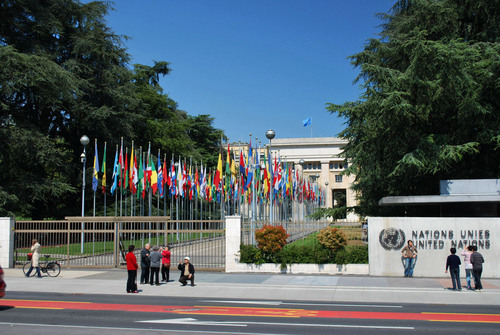The UN Guiding Principles (GPs) for the Policy Framework to Protect, Respect and Remedy on the issue of Human Rights and Transnational Corporations and other Businesses have been endorsed by the UN Human Rights Council last June 16th 2011.
These GPs are the outcome of the second mandate of the Special Representative for the Secretary General (SRSG) on Human Rights and Transnational Corporations (TNCs) and other businesses, Professor John Ruggie commanding him to operationalize the Policy Framework. The SRSG first mandate ended up with the “Policy Framework for Human Rights and TNCs” known as the “Protect, Protect and Remedy” Policy, broadly accepted, endorsed and unanimously adopted in 2008. With this resolution, ends up a six years mandate for the SRSG.
This HRC resolution approving the GPs, establishes a mechanism for implementation: a Working Group (WG). It consists in five independent experts of balanced geographical representation for a period of three years. The WG will be requested to promote effectively the dissemination and implementation of both, the Policy Framework as well as the GPs. This includes capacity building activities and even advice and recommendation to policy development on business and human rights upon request. They will also have to identify exchange and promote good practices and lessons learnt on the implementation process and in this context seek and receive information from all stakeholders to this issue. They will be able to conduct country visits as well.
The Working Group will be appointed in September 2011 and nominations for the experts to form this WG will be soon.
The Policy Framework plus the GPs provide good standards to uphold Multinational Enterprises accountable. But no standard can be really implemented without a proper monitoring and compliance mechanism. In this case the WG does not have formal mandate to receive cases but neither has a ban for that. It can provide assessment to countries and others stakeholders in policy making and of course in implementation of the Policy Framework and GPs, upon request. In this scenario it would be up to the selected experts to proactively go beyond the concrete mandate and seize the opportunity for country visit requests and assess upon concrete cases. It is highly important to include victim’s views and positions towards TNCs violations. Therefore it is essential that the WG can effectively address problems and obstacles found in business-related abuses situations and cases. In order to reach that, the WG has to have the necessary means to be able to properly assess the implementation of these GPs and the Framework by governments and companies and to formulate recommendations on enhancing access to effective remedies for these victims.
Victor Ricco from the Center for human rights and environment (CEDHA) remarks that last year and a half the world has defined concrete standards in different forums for promoting responsible corporate conduct and for fostering to hold multinational corporations accountable. ISO 26 000, IFC social and environmental performance standards, the OECD Guidelines for multinational Enterprises and the GPs of the UN Policy Framework for Human Rights and Business are some of these standards. This concern and effort made by governments and key stakeholders in each process, will only be successful and therefore efficient to hold companies accountable if implementation and monitoring is placed in a responsible and verifiable manner, in order to prevent violations and where these happen in order to have victims get proper redress and violators the deserved sanction. In this regard, Ecuador besides providing its approval to the GPs also manifested the need for binding instruments to rule corporate conduct.
For further information please see:
· Guiding Principles
· The UN Human Rights Council resolution but in the format of the oral revision for distribution in the room the day before the approval of the resolution actually happened.
· Ecuador position towards the Guiding Principles
· Contact Victor Ricco or Sol Delamer. [email protected] or [email protected]


